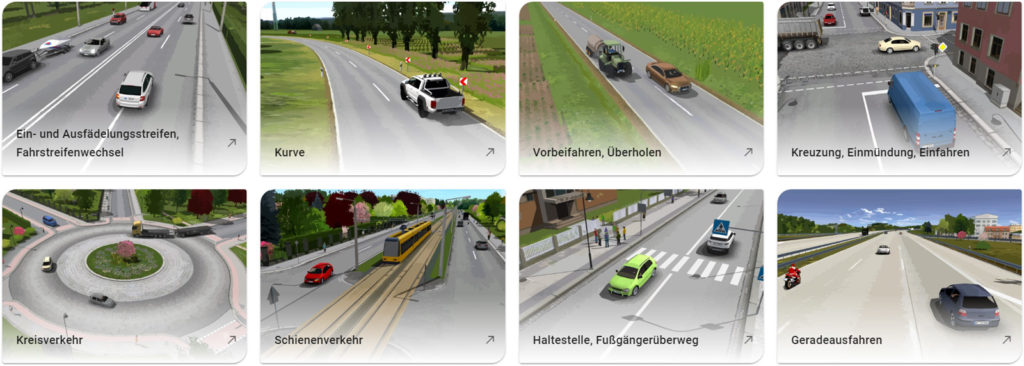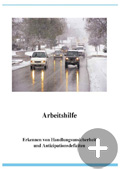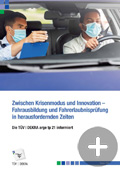TÜV | DEKRA arge tp 21 - Role, tasks, responsibility
We are responsible for the ongoing development of the theoretical and practical test for the driving licence in collaboration with the relevant authorities, the technical testing centres for motor vehicle traffic and the driving teachers. During this development process, we work closely together with several research institutes.
The aim is to ensure that the driving licence test makes the best possible contribution to novice drivers’ road safety under conditions that are constantly changing.

Theoretical driving licence test
The aim of the theoretical driving licence test is to check whether the novice drivers have the necessary knowledge and required understanding of the road traffic regulations at the end of their theory courses.
On average, about 1.7 million theoretical driving licence tests are conducted annually for all driving licence classes in German and 12 further languages.
Since 2008, the theoretical driving licence test has been conducted using a uniform testing system throughout Germany. It was developed centrally by the TÜV | DEKRA arge tp 21 and has been made available to all technical testing centres. The basis of the theoretical driving licence test are the items in the catalogue of the theoretical driving licence test. In order to ensure a high quality of the items, these are regularly evaluated according to scientific standards (continuous evaluation).
Mock Exam
To carry out a mock exam, please select the desired language by clicking on the corresponding country symbol. You can then select the desired driving licence category by clicking on the vehicle symbols.


























Practical driving licence test
The practical driving licence test is intended to determine whether novice drivers have sufficient driving competence to be able to drive a motor vehicle safely and responsibly.
The test drive is carried out and evaluated on the basis of the "driving task catalogue". This describes exactly which driving tasks are to be performed, which requirements are to be met and how the performance is to be assessed. The examiners therefore assess the performance shown on the basis of assessment criteria that are uniformly defined throughout Germany. The documentation of the driving licence test is done with the digital test protocol.
At the end of the driving licence test, the examiner gives detailed feedback on the driving skills assessed. In addition, a written performance feedback is provided.
Further development of the theoretical and practical driving licence test
In order to ensure a high test quality, the questions of the theoretical driving licence test as well as the standards of the practical driving licence test are regularly evaluated by a research institute (continuous evaluation). Based on this evaluation, the content is revised if necessary.
In addition, the driving licence tests are being adapted to the changes in road traffic. For example the requirements of the practical driving licence test also include the correct use of advanced driver assistance systems.
More information on research projects and the further development of driving licence examinations can be found in our publications.

Licensing
Providers of teaching and learning materials can obtain the complete content of the item catalogue and the driving task catalogue (covering all driving licence classes) from the TÜV | DEKRA arge tp 21 for a fee and make them available in digital or analogue form for the preparation of novice drivers or driving school training. The content is continuously updated.
Module request
Modules of the Theoretical Driving Licence Test
German texts of the items
Foreign language texts of the items
Audio recording of the German texts
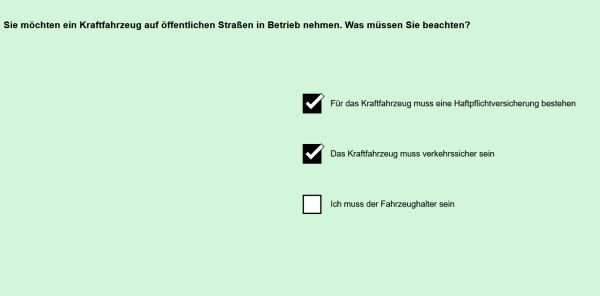
German texts of the items

The module contains the currently valid examination tasks (questions and answers) in German according to the specifications of the question catalogue of the theoretical driving licence examination.
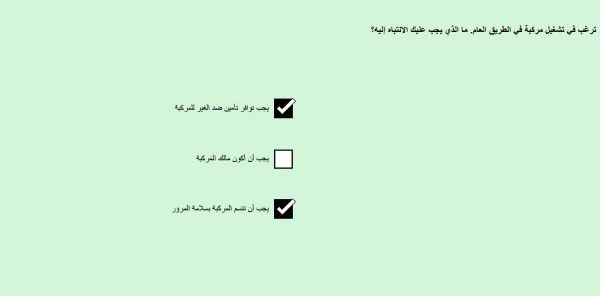
Foreign language texts of the items

The module contains the currently valid written foreign language examination tasks (questions and answers) for the theoretical driving licence examination according to the requirements of the legislator (point 4.7 of the examination guideline of the driving licence ordinance). The currently valid foreign languages are: English, French, Greek, Italian, Polish, Portuguese, Romanian, Russian, Croatian, Spanish, Turkish, High Arabic.

Audio recording of the German texts

Applicants can receive audio support in German for the theoretical driving test in accordance with the Driving Licence Ordinance (FeV, Annex 7, Clause 1.3).
The module includes the setting of the currently valid examination tasks.
Licensees with an existing contract for the provision of the standard variants (module 4) are additionally provided with the sound recordings of the German-language texts of the standard variants.
Illustrations of traffic situations
Variants of the illustrations of traffic situations
Old stock of valid graphics
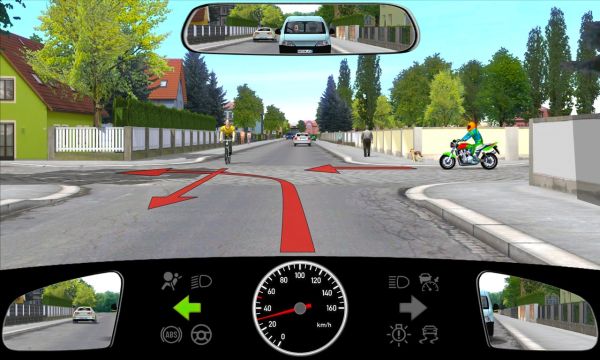
Illustrations of traffic situations

The module contains the currently valid computer-generated images of traffic situations (static and dynamic) according to the question catalogue of the theoretical driving licence examination.
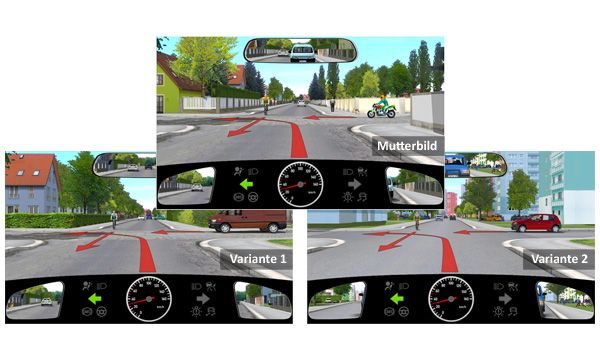
Variants of the illustrations of traffic situations
 The module offers the possibility to include variants to the currently valid mother tasks of the static and dynamic situation representations of the question catalogue. For this purpose, 2 different models are made available under licence:
The module offers the possibility to include variants to the currently valid mother tasks of the static and dynamic situation representations of the question catalogue. For this purpose, 2 different models are made available under licence:
- Standard variants: includes the provision of two standard variants per parent task according to the specifications of TÜV | DEKRA arge tp 21.
- Individual variants: includes the creation of individual variants according to your specifications. Remuneration for this is based on the time and effort involved in submitting a quotation and its confirmation by you.
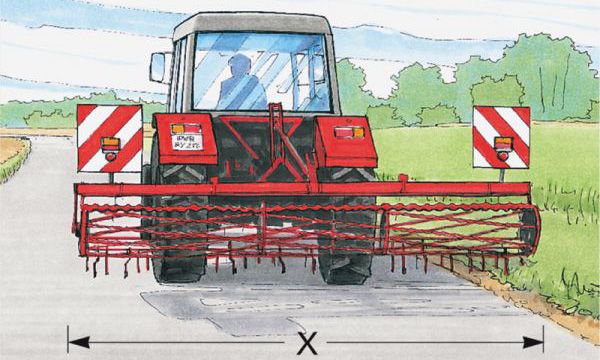
Old stock of valid graphics

The module contains the graphics of the examination tasks that are still valid after 30.06.2011 and have not been converted into computer-generated images.
Traffic signs and other illustrations
Weitere Abbildungen (Teilmenge des Moduls „Verkehrszeichen u. weitere Abb.“)
Examination layout
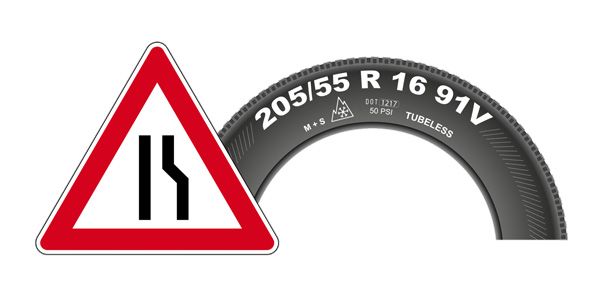
Traffic signs and other illustrations

The module contains the currently valid images of traffic signs, traffic facilities and other images (e.g. tyre images) that are included in the currently valid question catalogue for the theoretical driving test.
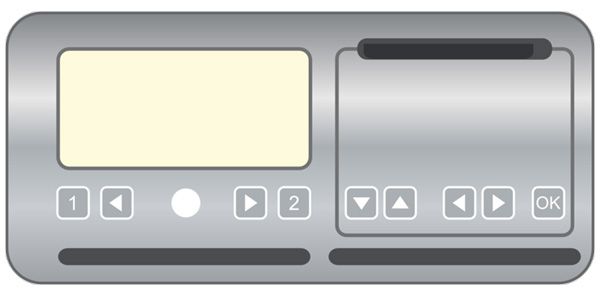
Other illustrations (subset of the module "Traffic signs and other illustrations")

The module contains only the further illustrations (e.g. tyre pictures) that are included in the currently valid question catalogue of the theoretical driving licence examination and thus represents a subset of module 3.3.
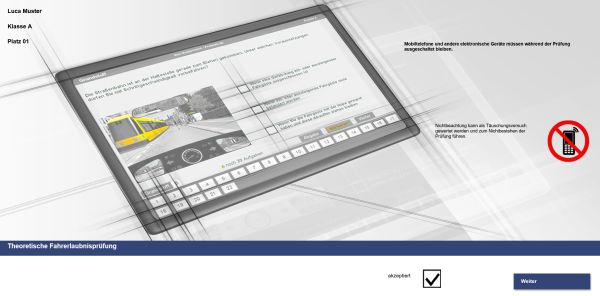
Examination layout
 The module includes the rights to use the official layout for the creation of teaching and learning materials as preparation for the Theoretical Driving Test in Germany.
The module includes the rights to use the official layout for the creation of teaching and learning materials as preparation for the Theoretical Driving Test in Germany. Modules of the Practical Driving Licence Test
Driving task catalogue of all classes and the basic driving tasks (structured data)
Films of the online portal for the practical driving test

Driving task catalogue of all classes and the basic driving tasks (structured data)

The module contains the current driving task catalogues of all driving licence classes of the practical driving licence examination in electronic form as structured data.
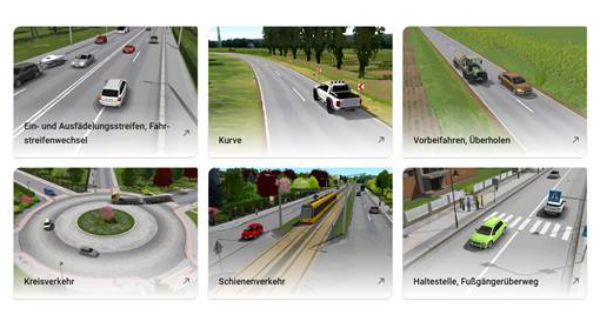
Films of the online portal for the practical driving test
 The module contains the films shown on the online portal for the practical driving test on the requirements of the test drive.
The module contains the films shown on the online portal for the practical driving test on the requirements of the test drive.
Module request
Publications
User instructions and working aids for the driving licence test
Arbeitshilfe – Empfehlungen zur Motorradfahrerschutzkleidung für die fahrpraktische Ausbildung und Fahrerlaubnisprüfung.
Dresden.
Anwenderhinweise zur Bewertung der Nutzung von Fahrerassistenzsystemen.
Dresden.
Arbeitshilfen – Erkennen von Handlungsunsicherheit und Antizipationsdefiziten.
TÜV | DEKRA arge tp 21, Dresden.
Arbeitshilfen – Gesprächsführung in schwierigen Situationen.
TÜV | DEKRA arge tp 21, Dresden.
Arbeitshilfen – Grundlagen von Bewertungs- und Entscheidungsprozessen.
TÜV | DEKRA arge tp 21, Dresden.
Arbeitshilfen – Umgang mit Prüfungsangst.
TÜV | DEKRA arge tp 21, Dresden.
Arbeitshilfen – Moderne, umweltschonende Fahrweise.
TÜV | DEKRA arge tp 21, Dresden.
Booklets
Erhöhung der Verkehrssicherheit durch ein leistungsstarkes Ausbildungs- und Prüfungssystem – Bisherige Erfolge und Perspektiven zur Weiterentwicklung
Heinrich Vogel Verlag, München.
Zwischen Krisenmodus und Innovation – Fahrausbildung und Fahrerlaubnisprüfung in herausfordernden Zeiten.
Heinrich Vogel Verlag, München.
Bestehendes verbessern, Neues entwickeln – Verkehrssicherheit durch die Fahrerlaubnisprüfung.
Heinrich Vogel Verlag, München.
Fahranfängervorbereitung: Heutige und zukünftige Anforderungen für nachhaltige Sicherheit.
Heinrich Vogel Verlag, München.
Vom e-Prüfprotokoll bis zur regionalisierten Gefahrenlehre – gemeinsame Herausforderungen und Erfolge.
Heinrich Vogel Verlag, München.
Einheitliche Bildungsstandards als Brücke zwischen Fahrschulausbildung und Fahrerlaubnisprüfung.
Heinrich Vogel Verlag, München.
PC-Prüfung – Theorieprüfung am Computer – Erste Erfahrungen.
Heinrich Vogel Verlag, München.
PC-Prüfung – Theorieprüfung am Computer.
Heinrich Vogel Verlag, München.
Reports
- TÜV | DEKRA arge tp 21 (Hrsg.) (2024). Mobilität im Wandel – Neue Perspektiven für die Fahrerlaubnisprüfung. Innovationsbericht zum Fahrerlaubnisprüfungssystem 2019-2022. TÜV | DEKRA arge tp 21.
- Schleinitz K., Pils, L. & Bräutigam, P. (2023). Weiterentwicklung und Erprobung einer Fahrkompetenz-Rückmeldefahrt für ältere PKW-Fahrerinnen und PKW-Fahrer. TÜV | DEKRA arge tp 21. ISBN: 978-3-00-077518-5.
- Schleinitz, K., Rößger, L. & Berthold, J. (2020). Fahrkompetenz-Rückmeldefahrt für ältere Pkw-Fahrer. TÜV | DEKRA arge tp 21. ISBN: 978-3-00-064839-7.
- Schleinitz, K., Bräutigam, P. & Gehlert, T. (2020). Literaturreview zur Akzeptanz und Wirksamkeit von alkoholempfindlichen Wegfahrsperren. Unfallforschung der Versicherer, Gesamtverband der Gesamtverband der Deutschen Versicherungswirtschaft e.V., ISBN: 978-3-939163-95-4.
- TÜV | DEKRA arge tp 21 (Hrsg.) (2019). Automatisiertes Fahren als Herausforderung für die Fahranfängervorbereitung. Innovationsbericht zum Fahrerlaubnisprüfungssystem 2015 – 2018. TÜV | DEKRA arge tp 21.
- TÜV | DEKRA arge tp 21 (Hrsg.) (2017). Verkehrswahrnehmung und Gefahrenvermeidung-Grundlagen und Umsetzungsmöglichkeiten in der Fahranfängervorbereitung: Innovationsbericht zum Fahrerlaubnisprüfungssystem 2011-2014. TÜV | DEKRA arge tp 21 (Hrsg.) Bundesanstalt für Straßenwesen, Bergisch Gladbach.
- TÜV | DEKRA arge tp 21 (Hrsg.) (2013). Das Fahrerlaubnisprüfungssystem und seine Entwicklungspotential: Innovationsbericht zur Optimierung der Fahrerlaubnisprüfung im Berichtszeitraum 2009/2010. TÜV | DEKRA arge tp 21 (Hrsg.)Bundesanstalt für Straßenwesen, Bergisch Gladbach.
- Sturzbecher, D., Bönninger, J. & Kammler, K. (Hrsg.) (2008). Die Geschichte der Fahrerlaubnisprüfung in Deutschland. TÜV | DEKRA arge tp 21.
- Bönninger, J., Kammler, K., Sturzbecher, D. & Wagner, W. (2005). Theoretische und praktische Fahrerlaubnisprüfung in Europa – Recherchebericht. TÜV | DEKRA arge tp 21.
- Bönninger, J. & Sturzbecher, D. (2005). Optimierung der Fahrerlaubnisprüfung – Berichte der Bundesanstalt für Straßenwesen. Bundesanstalt für Straßenwesen, Bergisch Gladbach. ISBN: 3-86509-294-2
Journal articles
- Schleinitz, K. (2025). Verbesserung und Erhalt der Fahrkompetenz von älteren Fahrerinnen und Fahrern. Deutsches Autorecht, 95(2).
- Schleinitz, K., Pils, L. & Bräutigam, P. (2024). Erprobung der Umsetzung einer Rückmeldefahrt für ältere Fahrerinnen und Fahrer. Zeitschrift für Verkehrssicherheit, 70(2), 189-195.
- Rößger, L., Friedel, T. & Rüdel, M. (2023). Die Vorbereitung auf die motorisierte Verkehrsteilnahme weiter optimieren. Vision Zero konkret, VOD Schriftenreihe Nr.2, 79-83.
- Scholze, L., Rößger, L., & Bredow, B. (2023). Vorhersage von verkehrssicherem Fahren bei Fahranfängern – Eine Studie zur prädiktiven Validität eines Tests zur Erfassung von Verkehrswahrnehmungs- und Gefahrenvermeidungskompetenzen. Zeitschrift für Verkehrssicherheit, 68(2), 105-110.
- Friedel, T., & Pöge, A. (2021). Ersteinschätzung zum Start der optimierten Praktischen Fahrerlaubnisprüfung. Zeitschrift für Verkehrssicherheit, 67(4), 231-234.
- Schleinitz, K. (2020). Ältere – die Gefahr im Straßenverkehr?! Erfassung der Fahrkompetenz von älteren Pkw-Fahrern bei einer Rückmeldefahrt. Zeitschrift für Verkehrssicherheit, 66(2), 126-130.
- Rößger, L., Schleinitz, K., & Friedel, T. (2018). Die Bedeutung der Automatisierung von Kraftfahrzeugen für die Fahranfängervorbereitung. Zeitschrift für Verkehrssicherheit, 64(5), 345-353.
- Schleinitz, K., Berthold, J., & Rößger, L. (2018). Ergebnisse einer Befragung zur Fahrkompetenz, individuellen Kompensationsstrategien, sowie der Akzeptanz von Fahrkompetenz-Rückmeldefahrten bei älteren Autofahrern. Zeitschrift für Verkehrssicherheit, 64(3), 219-227.
- Dreßler, A., Bredow, B., Rößger, L., Rüdel, M., & Sturzbecher, D. (2017). Development and Trial of an Item Set for Testing Traffic Perception and Hazard Avoidance. In: Stanton, N., Landry, S., Di Bucchianico, G., Vallicelli, A. (eds) Advances in Human Aspects of Transportation. Advances in Intelligent Systems and Computing, vol 484. Springer, Cham.
- Rößger, L.; Gloger, C., & Scholze, L. (2017): Entwicklung und Erprobung innovativer Aufgabenformate für die Überprüfung von Verkehrswahrnehmung. Zeitschrift für Verkehrssicherheit, 63(4), 115-124.
Conference papers
- Rüdel, M., Friedel T. (2023). Die Fahrausbildung der Zukunft mit automatisierter Fahrfunktion und alternativen Antriebsformen. 9. Deutscher Fahrlehrerkongress, Berlin.
- Schleinitz, K., Bräutigam P., & Pils, L. (2023). 1. Evaluation einer Rückmeldefahrt für ältere Fahrer und Fahrerinnen. Vierter Kongress der Fachgruppe Verkehrspsychologie, Stuttgart.
- Schleinitz, K., Pils, L., & Bräutigam, P. (2023). Erprobung des Konzeptes einer Fahrkompetenz-Rückmeldefahrt für ältere Fahrer:innen. 19. Gemeinsamen Symposium der DGVP und DGVM, Wien.
- Friedel, T. (2023). Advanced Driver Assistance Systems in the driver license exam in Germany. 55th CIECA Congress, Wien, Österreich.
- Rößger, L., & Bredow, B. (2022). A study on predictive validity of Hazard Perception Testing. International Conference of Traffic and Transportation Psychology, Göteborg, Schweden.
- Scholze, L., Rößger, L., & Bredow, B. (2022). Vorhersage von verkehrssicherem Fahren bei Fahranfängern – Eine Studie zur prädiktiven Validität eines Tests zur Erfassung von Verkehrswahrnehmungs- und Gefahrenvermeidungskompetenzen. 18. Gemeinsamen Symposium der DGVP und DGVM, München.
- Schleinitz, K., Rößger, L., & Bräutigam, P. (2021). Safety for all: The adaptation of concepts from novice driver assessment to other driver populations. 48th CIECA Congress.
- Rüdel, M. (2020). Prüfungserfolg im Spannungsfeld zwischen Verkehrssicherheit und Mobilitätszugang. 58. Verkehrsgerichtstag 2020, Goslar.
- Schleinitz, K., & Rößger, L. (2020). Erfassung und Rückmeldung der Fahrkompetenz von älteren Pkw-Fahrern mittels eines tabletbasierten Bewertungssystems bei einer Fahrt im Realverkehr. Forum für Verkehrssicherheit Münchender Deutschen Gesellschaft für Verkehrsmedizin (DGVM), München.
- Schleinitz, K., & Rößger, L. (2019). Erfassung der Fahrkompetenz von älteren Pkw-Fahrern mittels einem tabletbasierten Bewertungssystem bei einer Fahrkompetenz-Rückmeldefahrt. Dritter Kongress der Fachgruppe Verkehrspsychologie, Saarbrücken.
- Rüdel, M., & Dressler, A. (2017). The CIECA-RUE recommendations: Driving standards, competence measurement and training reforms. 49th CIECA Congress, Trondheim, Norwegen.
Contact
| phone | +49 351 20789-0 | |
| fax | +49 351 20789-20 | |
Links
Straßenverkehrssicherheit
Informationen des Bundesministeriums für Digitales und Verkehr zur Straßenverkehrssicherheit
Begleitetes Fahren ab 17 Jahre
Informationen des Bundesministeriums für Digitales und Verkehr zum Begleiteten Fahren ab 17 Jahre
JUNG + SICHER + STARTKLAR
Informationen der Deutschen Verkehrswacht zur Aktion „Jung+Sicher+Startklar“





 Klasse A
Klasse A Klasse B
Klasse B Klasse A, B
Klasse A, B Klasse Mofa
Klasse Mofa